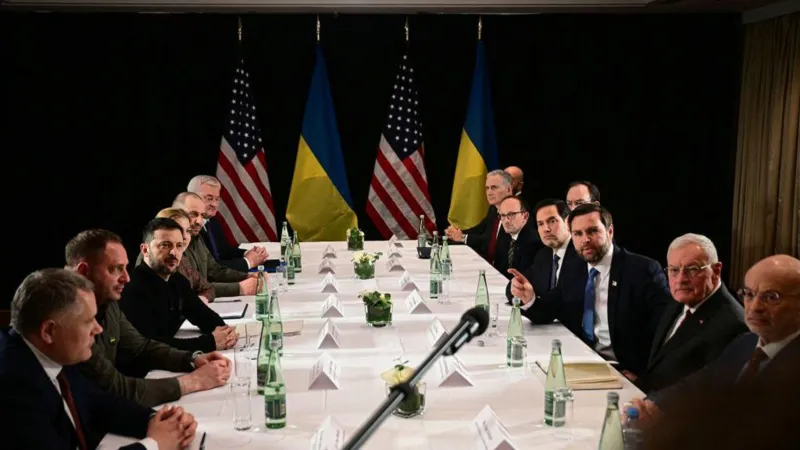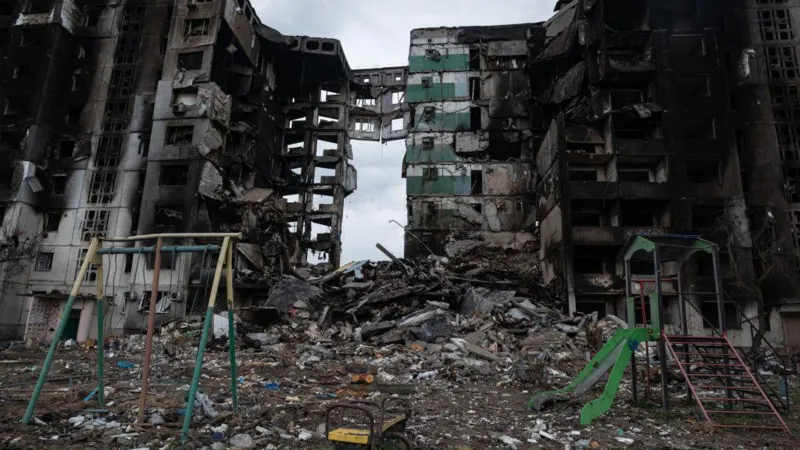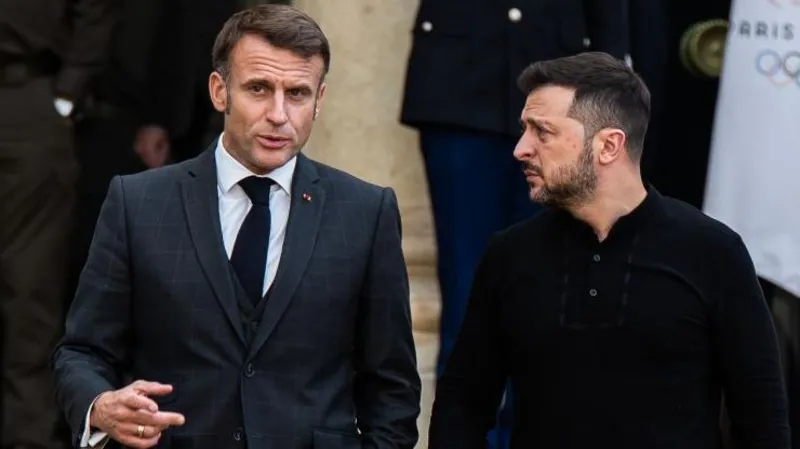Europe’s leaders find themselves in a state of urgency, as evidenced by their emergency security summit held in Paris on Monday. This convening underscores the continent’s growing alarm, particularly in light of the recent exclusion from U.S. led discussions with Russia regarding the future of Ukraine. U.S. President Donald Trump announced that he may soon meet with Russian President Vladimir Putin, further intensifying the pressure on European nations to respond effectively.
The critical question now is whether Europe can set aside political divisions and pressing domestic economic issues to present a cohesive strategy on security spending and Ukraine’s future. The possibility of deploying troops to assert their presence and ensure a place at the negotiating table is a topic of serious consideration. On Monday morning, UK Prime Minister Sir Keir Starmer emphasized Britain’s readiness to commit troops if necessary, signaling the UK’s willingness to take a proactive stance in the crisis.

Starmer’s remarks come at a time when the UK is grappling with its own political challenges, including the ongoing ramifications of Brexit and internal governance issues. Nevertheless, Starmer’s assertion reflects a broader sentiment among European leaders that the time has come to unite against external threats. The urgency of the situation is palpable, as any lack of a coordinated response could leave Europe sidelined in critical negotiations regarding Ukraine.
Germany, traditionally cautious in its military engagements, is also weighing its options. Ahead of a contentious election, the foreign policy spokesman for the Christian Democratic Union (CDU), the party expected to secure the most seats, indicated that Germany would be prepared to contribute troops as part of an international coalition. This represents a notable shift in Germany’s approach, driven by the recognition that its security is deeply intertwined with the stability of its Eastern neighbors.
Moreover, discussions at the summit included considerations for increasing defense budgets across the continent. Many leaders are advocating for a significant boost in military spending to enhance Europe’s independent capabilities. The growing consensus is that a robust military presence is essential not only for deterrence but also for maintaining influence in critical diplomatic discussions.
However, the Trump administration’s stance on Ukraine remains ambiguous, with a series of mixed messages emerging over the weekend. While Trump has expressed a desire for dialogue with Russia, the specifics of U.S. policy regarding military support for Ukraine and European allies remain unclear. This uncertainty complicates Europe’s efforts to formulate a unified response, as leaders grapple with the implications of U.S. decisions on their own security policies.

The ramifications of this situation extend beyond immediate military concerns. A failure to present a united front could embolden adversaries and jeopardize Europe’s security architecture. As such, the urgency for European nations to come together has never been more critical. The stakes are high, not only for Ukraine but for the broader geopolitical stability of Europe.
As the crisis unfolds, Europe’s leaders are acutely aware that their choices now will shape the future of the continent. The need for a coherent strategy that prioritizes collective security and regional stability has never been more pressing. The outcome of this summit and the subsequent actions taken by European leaders will be closely monitored, as they navigate the delicate balance between diplomacy and defense in a rapidly changing world.



